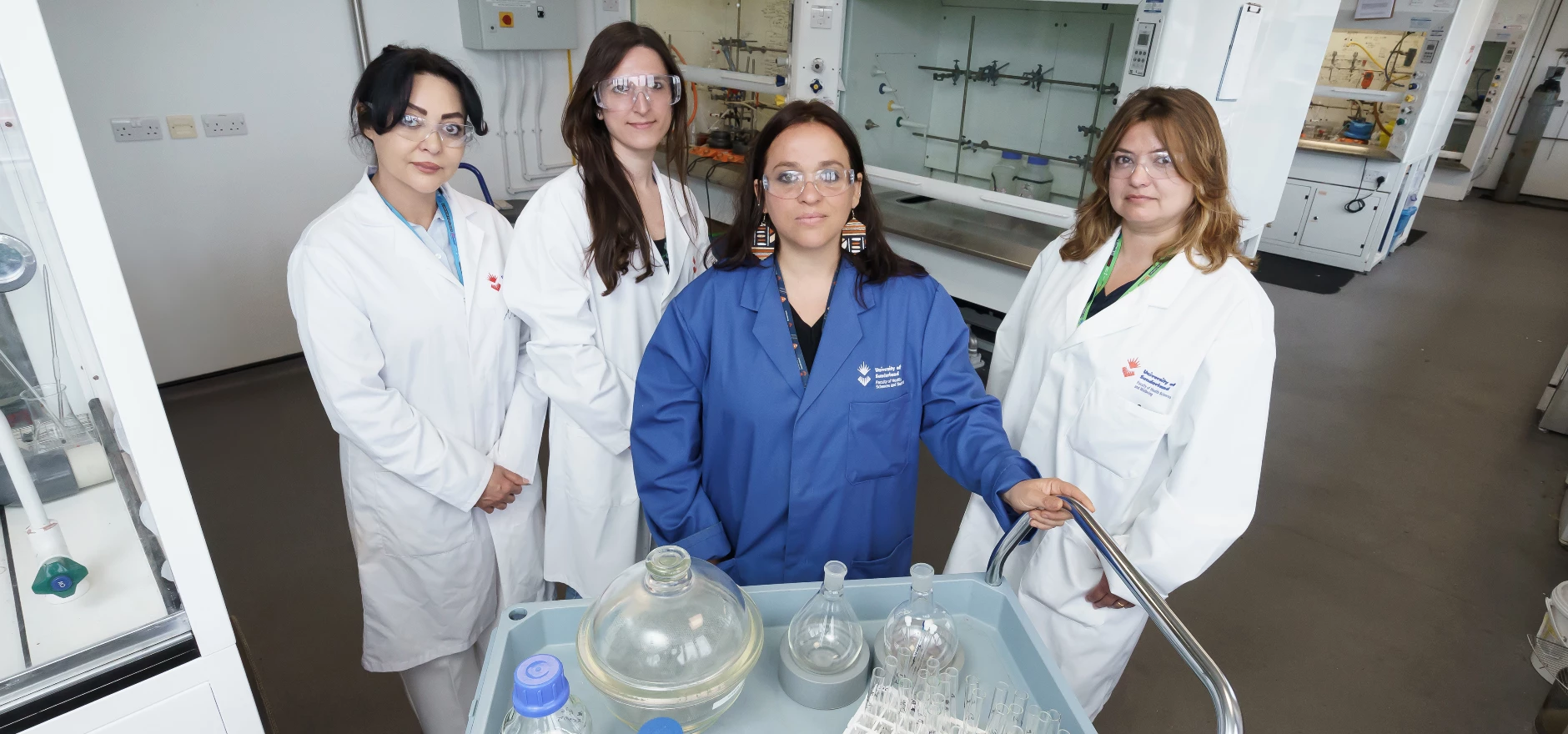
Scientists target liver scarring breakthrough
A university research team is exploring a new way to treat liver disease.
Researchers at the University of Sunderland, led by Dr Maria Teresa Borrello, lecturer in pharmaceutical and medicinal chemistry, in partnership with associate professor Dusan Ruzic and researchers from Serbia's University of Belgrade, have identified a promising approach to tackling liver fibrosis, a condition that causes scarring of the liver and can lead to failure or cancer.
The team’s early-stage study, which began in a laboratory at Newcastle University and was continued at Sunderland after external funding was secured, focuses on blocking an enzyme called HDAC6, which plays a key role in the development of scar tissue.
Dr Borrello says the experimental treatment could offer the first step towards reversing or slowing liver fibrosis, which is currently without an approved drug.
She said: “So far, we’ve seen encouraging laboratory results showing that HDAC6 inhibitors – or blockers – reduce inflammation and cellular stress responses, both of which are key contributors to fibrosis.
“These findings support the idea that HDAC6 is a promising drug target for treating liver fibrosis.
“We are also starting to understand more about how these compounds work at the molecular level, which is essential for designing better, safer treatments.
“In our lab, we developed two new drugs specifically designed to block HDAC6 activity.
“This discovery could form the basis of future treatments and offer hope for those living with chronic liver conditions.
“Our HDAC6 inhibitors provide a more targeted approach and by focusing on a key cause of fibrosis, we may be able to stop the disease before it reaches irreversible stages.
“By stopping or reversing the scarring process, we could reduce the need for liver transplants and improve long-term health outcomes.”
The British Liver Trust, the UK’s leading liver charity, has welcomed the findings.
Pamela Healy, chief executive, added: “While this new research is still in its early stages, it shows promise for developing treatments that could improve, and ultimately save, the lives of thousands affected by liver disease.”
Looking to promote your product/service to SME businesses in your region? Find out how Bdaily can help →
Enjoy the read? Get Bdaily delivered.
Sign up to receive our daily bulletin, sent to your inbox, for free.








 Raising the bar to boost North East growth
Raising the bar to boost North East growth
 Navigating the messy middle of business growth
Navigating the messy middle of business growth
 We must make it easier to hire young people
We must make it easier to hire young people
 Why community-based care is key to NHS' future
Why community-based care is key to NHS' future
 Culture, confidence and creativity in the North East
Culture, confidence and creativity in the North East
 Putting in the groundwork to boost skills
Putting in the groundwork to boost skills
 £100,000 milestone drives forward STEM work
£100,000 milestone drives forward STEM work
 Restoring confidence for the economic road ahead
Restoring confidence for the economic road ahead
 Ready to scale? Buy-and-build offers opportunity
Ready to scale? Buy-and-build offers opportunity
 When will our regional economy grow?
When will our regional economy grow?
 Creating a thriving North East construction sector
Creating a thriving North East construction sector
 Why investors are still backing the North East
Why investors are still backing the North East